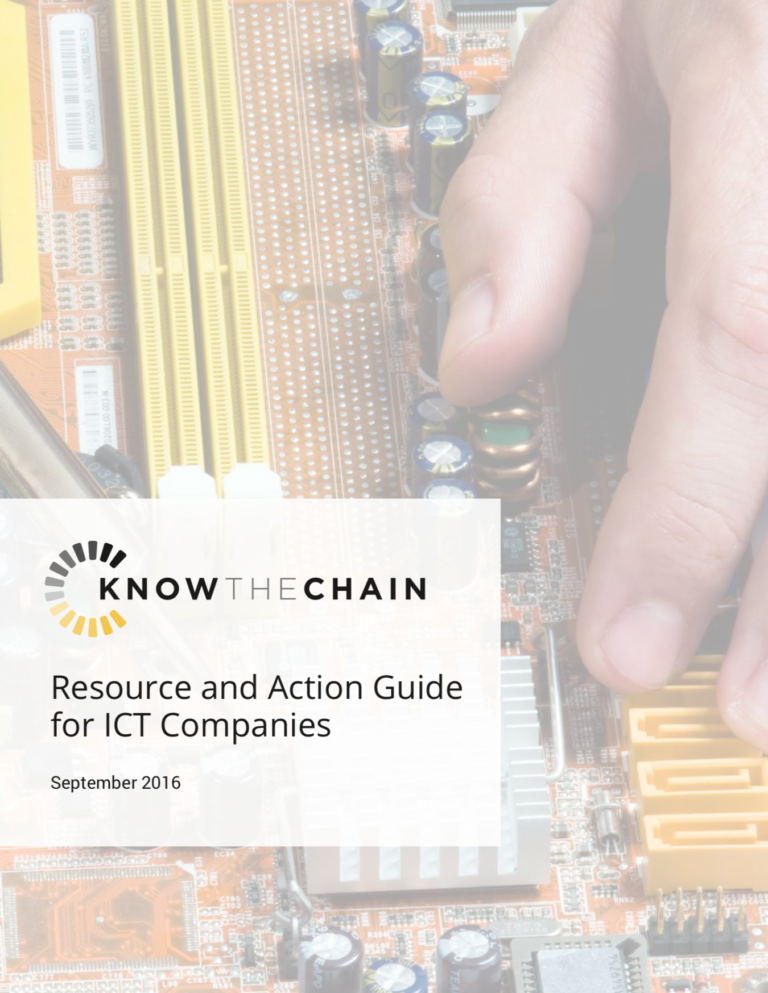This resource provides guidance to Information and Communications Technology (ICT) companies on addressing forced labor risks in their supply chains.
It complements the key findings of KnowTheChain’s first benchmark of 20 large ICT companies, though its advice is relevant to the sector as a whole. The guidance covers a range of issues—from policy development and monitoring to grievance procedures and remediation—and prioritizes areas of engagement that the benchmark found to be particularly weak. The aim of the guide is to support business, investor, and multi- stakeholder efforts to prevent forced labor and protect the rights of vulnerable workers in supply chains. It is best reviewed alongside KnowTheChain’s key findings report.

